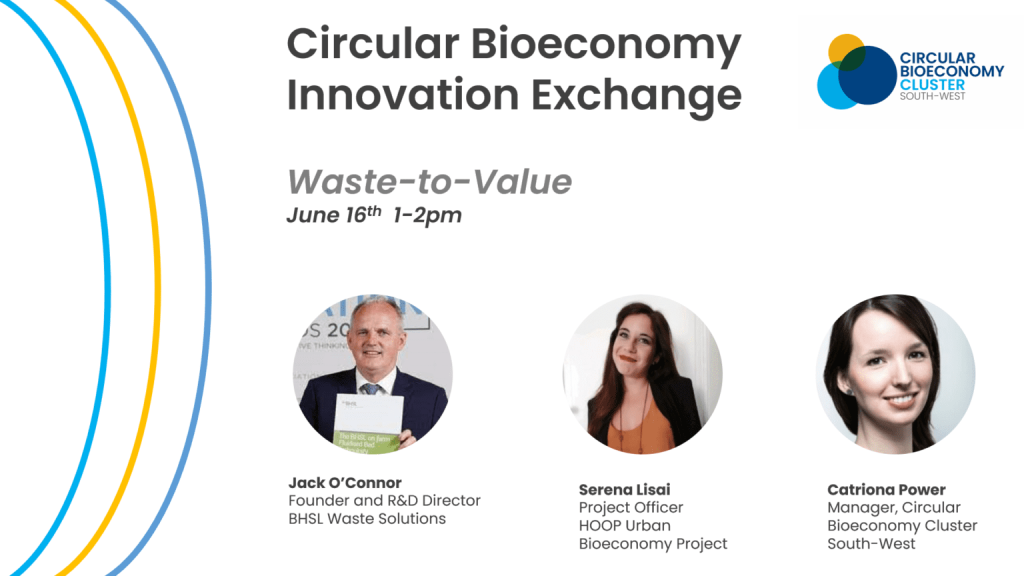
On June 16th we hosted our second Innovation Exchange webinar. Our guest speakers were Jack O’Connor, Founder and Research Director of BHSL Waste Solutions and Selena Lisai, Project Officer from ACR+ and consortium partner of HOOP Urban Bioeconomy Project. The theme of the session was centred on approaches to valorising and creating added value from what would be considered as low value waste streams – manure, wastewater and general biowaste (including food waste).
Why is this important? The European Bioeconomy Strategy see cities and regions as major circular bioeconomy hubs where biological waste is a feedstock for safe and sustainable bio feedstocks. By contributing to increase recycling of biowaste, wastewater and manure we are avoiding landfill, preventing nutrient leaching and reducing the associated GHG emissions. As we discovered from the respective presentations, it is possible to achieve this across Ireland and Europe from both a technology and collaboration perspective.
BHSL Waste Solutions
Jack O’Connor shared the story of West Limerick based technology company BHSL Waste Solutions who sought out to solve an on-farm industry problem addressing 1) excessive land spreading of poultry manure which led to phosphorus and nitrogen leaching and 2) overcoming expensive energy costs. Their patented Fluidised Bed Combustion Technology system can manage up to 10 tonnes of manure a day to generate hot water and electricity on farm, creating a win-win economic and environmental solution. In addition to energy, the resulting by-product can be used as a fertiliser aligning with the most recent EU Fertiliser Regulation. Even better, the technology system can be adapted for wastewater, sludge and other biological wastes, further solving environmental challenges across Europe.
HOOP Bioeconomy Project
Serena Lisai from ACR+ is a consortium partner of the HOOP Project, who has a unique and collaborative approach with 8 lighthouse cities and regions to create local bioeconomies. To support the network in addressing complex biological waste challenges the consortium provide Project Development Assistance including technical, economic, financial and legal expertise to develop concrete investments to valorise Organic Fraction of Municipal Solid Waste and Urban Wastewater Sludge with the aim of obtaining safe and sustainable bio-products. To achieve the goals of the project, they underlined the importance of collaboration and stakeholder engagement with industry, academia, government and society. Since project inception in 2021, over 9 regions, 16 cities, 9 wastewater treatment companies and 16 public authorities are taking part in the initiative.
